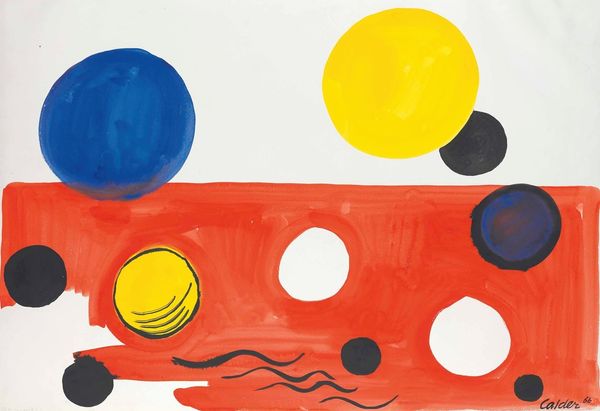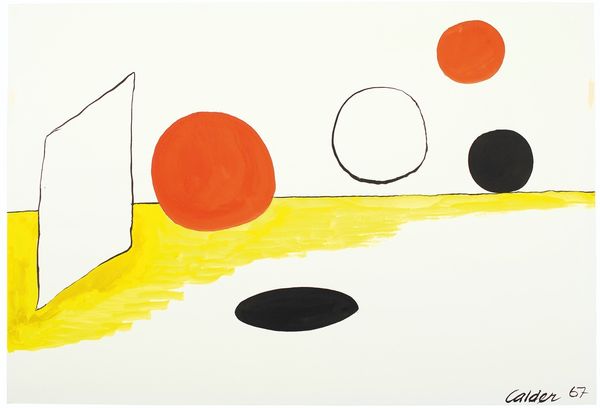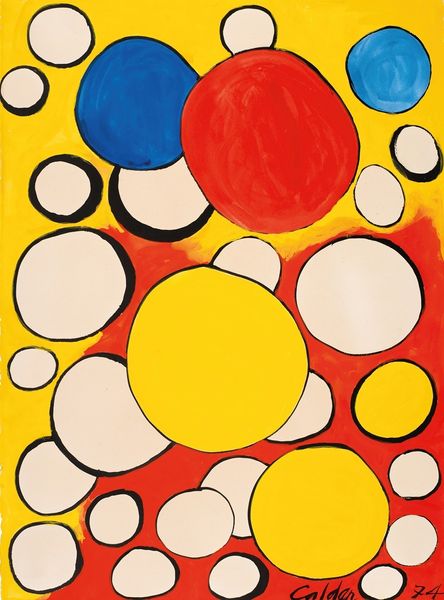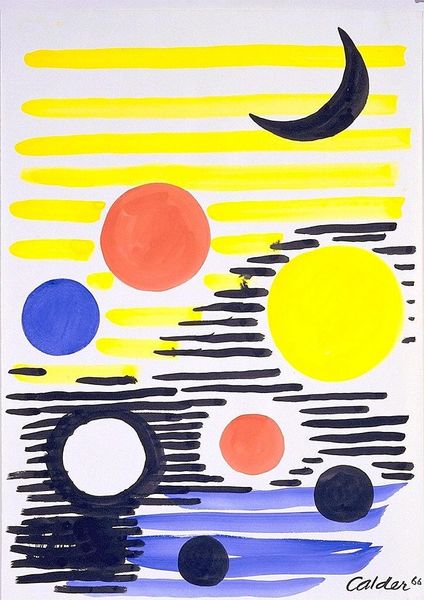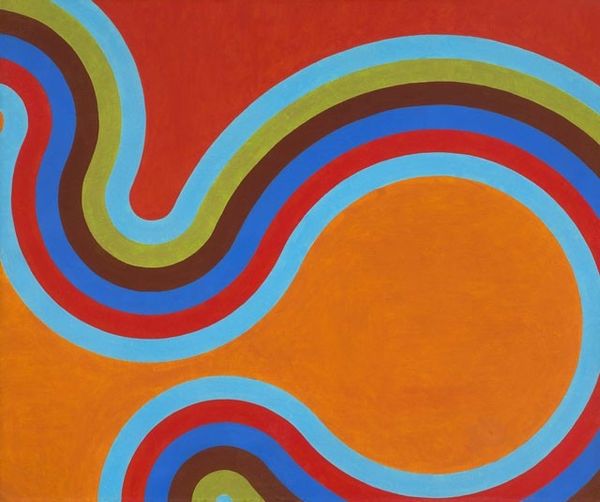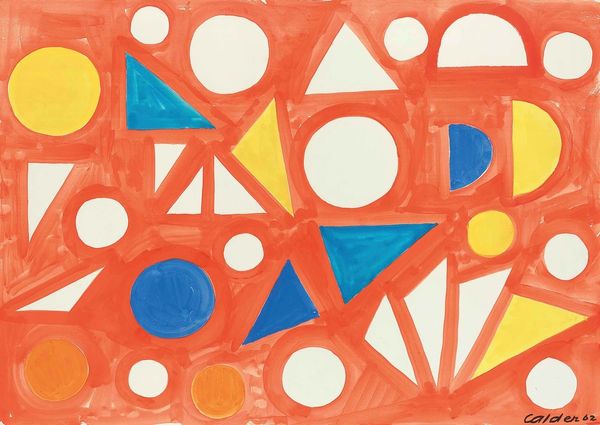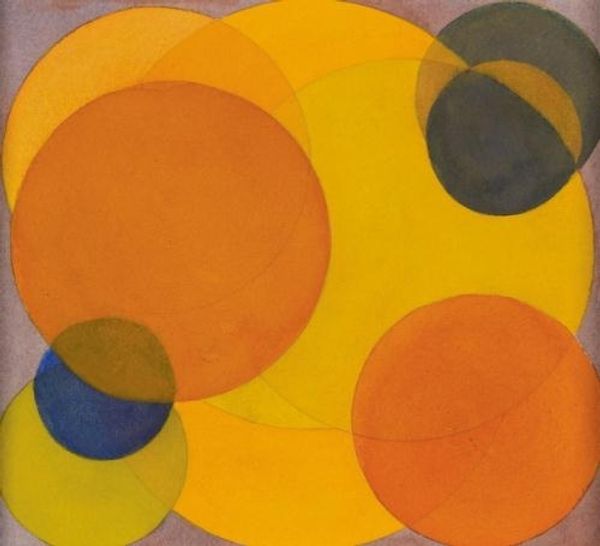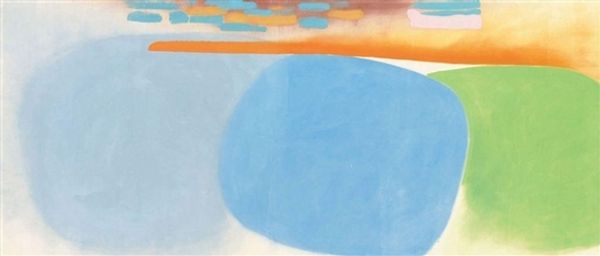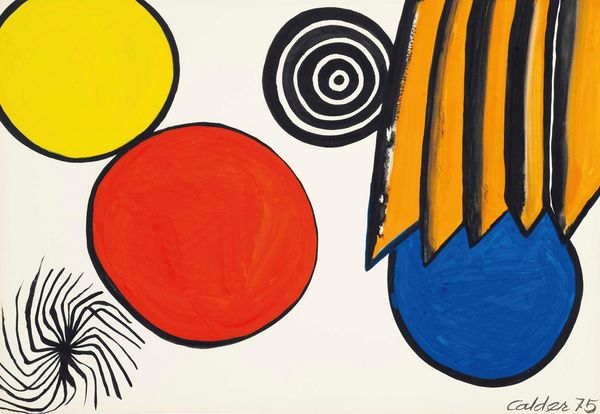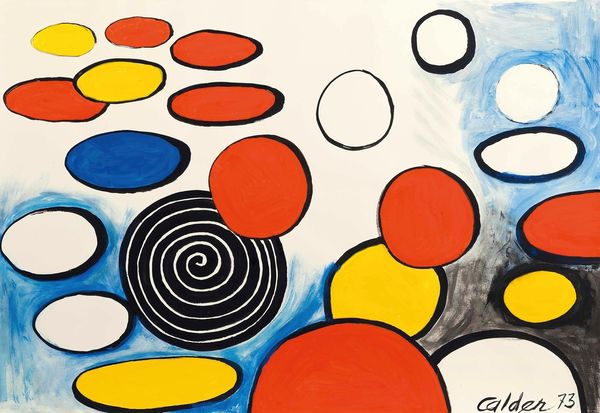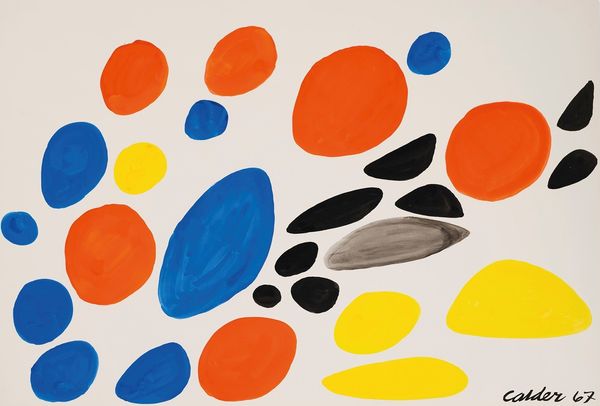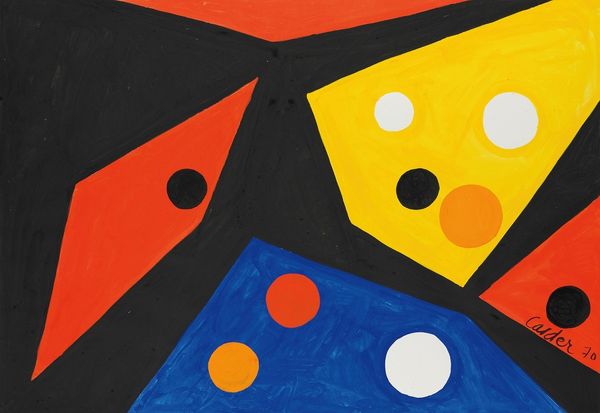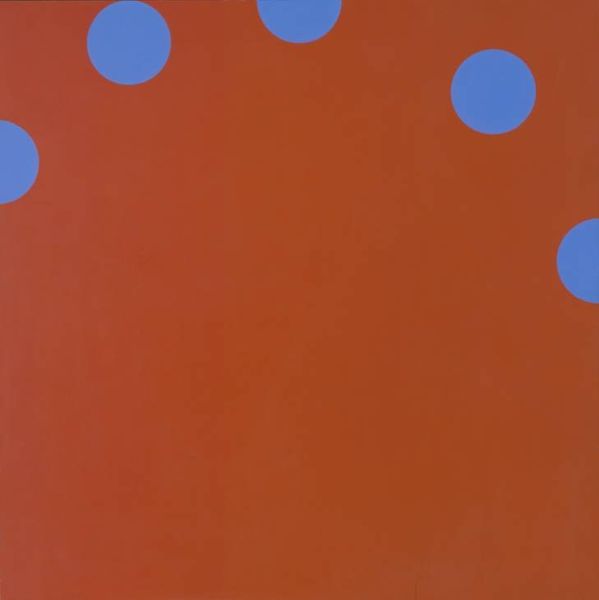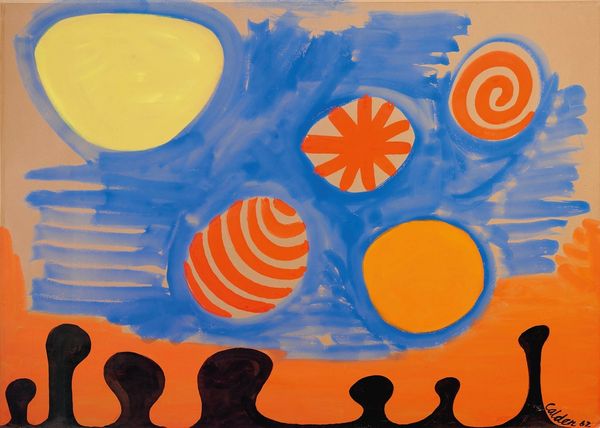
Copyright: Alexander Calder,Fair Use
Editor: Today, we’re looking at Alexander Calder's "Waves," created in 1973 using acrylic paint. It's incredibly vibrant! The stark colors and simple forms almost feel playful, yet there's also a sense of serene abstraction. How do you interpret this work, considering Calder's background? Curator: I'm immediately drawn to how Calder, primarily known for his mobiles, translates movement into a static, two-dimensional image. It feels very much of its time, doesn’t it? Consider the early 1970s; there's a rising consciousness around environmental issues, coupled with a sense of freedom expressed through the visual language of Pop Art. These colors, these simplified forms—do they evoke a sense of optimism or something more complex for you? Editor: I see the optimism, definitely! The bright colors remind me of beach trips and happy memories. But knowing about Calder's other work, I can’t help but see the potential for movement, frozen in time. Curator: Exactly! And what about the abstraction? The ‘Waves’ aren't naturalistic at all. How do you think that challenges or reinforces the environmental message? It prompts a bigger discussion around our idealized versus real relationship with nature, wouldn't you agree? Is this a representation or a deconstruction? Editor: That’s interesting. Maybe it's suggesting that even something as natural as waves can be reduced to simplified, almost commercialized forms? Like a poster advertising an idealized version of nature. Curator: Precisely! And that tension between nature, art, and commerce becomes really potent when we consider the historical moment it was created in. Pop Art critiqued consumerism, and this piece, through its style and abstraction, may echo that sentiment. Thank you, that was incisive. Editor: It's fascinating how much historical and social context can influence how we see a work of art. I'll never look at beach scenes the same way again.
Comments
No comments
Be the first to comment and join the conversation on the ultimate creative platform.
